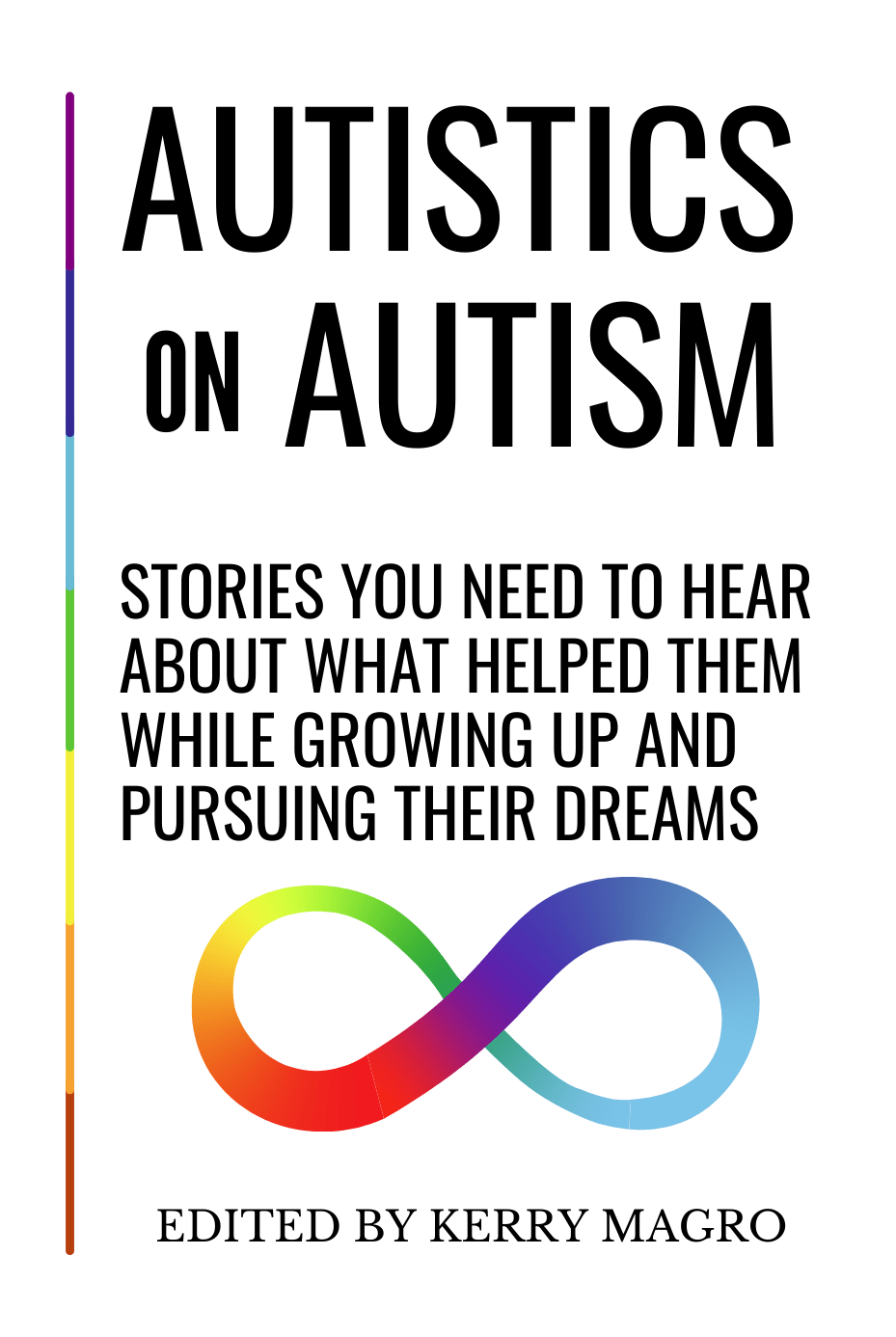This guest post is by Elias Linn, a young man on the autism spectrum who was diagnosed with Asperger’s Syndrome at age 5 and has been accepted into the University of Arizona. Elias is applying for the Spring 2022 Making a Difference Autism Scholarship via the nonprofit KFM Making a Difference started by me, Kerry Magro. I was nonverbal till 2.5 and diagnosed with autism at 4, and you can read more about my organization here. Autistics on Autism: Stories You Need to Hear About What Helped Them While Growing Up and Pursuing Their Dreams, our nonprofit’s new book, was released on March 29, 2022, on Amazon here for our community to enjoy featuring the stories of 100 autistic adults.
Special. That is what my parents have always described me as. My parents are my best friends. They were there for me when I took my first steps to when I spoke my first words. They have always and will always be my biggest supporters. They have experienced the best parts of my life to the worst. They have seen me at my worst and have seen me at my best. But one thing is for certain. Through the times in my life when I have looked for someone to believe in me and my abilities, they have always been there, every step of the way.
I was diagnosed with Asperger’s syndrome at the tender age of 5 years of age and have since struggled with socializing, my academic performance, and my confidence. My parents were both shocked to find out early on, without even looking into the possibilities of the future, from someone that, “I will not be able to achieve a college, high school, or middle school diploma”. I wasn’t aware of what it meant to have autism until I got older, but to me having autism didn’t really mean anything or made me different. I always saw myself like every other kid my age, unique and special, like the word “special” was a term used to positively define everybody. However, it was until I was older that I started to realize the many ways people interpreted the word “special”.
I took hours upon hours of IEP coursework, speech classes, as well as personal teaching lessons early on from both my school and my parents; I saw no problem with it and found it fun. Also, I would mess around with my teachers like any other kid, talk, laugh and enjoy learning. Yet, the difference was apparent.
It took me to notice a little while longer but as soon as I stepped outside of my IEP class, I would notice other classrooms, full of vibrant students who were exactly like me, beautiful and special. I would ask my mom and dad everything in a single day, “Mom and Dad – When can I go into the other kid’s classrooms”? They would both look at each other than look at my smile, never saying anything back but, “Soon”. I was finally introduced into a regular classroom in 1st grade but I still remained a part of the IEP program. This process continued all the way until 7th grade. During that time I spent 50% of my time in classrooms and 50% in IEP classwork, which would continue to shorten. I felt like I was on top of the world, or so I thought.
It wasn’t until I was in 5th grade that my classmates began to treat me differently. Every time I would walk out of one of my classrooms to attend IEP seminars, there would always be that one person in my class that would say the exact same thing, “Where is Elias going” and then someone else would respond, “Oh he’s going to the SPED class.”. I would always wonder what that word meant to me. The wording varied from “autistic”, to “special needs”, but the word that was most commonly used was “SPED”.
So, one day I decided to ask one of my classmates what the term “SPED” means, they replied stating that “It means you go to a class that is for kids that are very stupid or crazy.” and the classmates around that person would laugh and start making jokes about being SPED and would even refer to other’s a being SPED. It wasn’t until I was in middle school how degrading the insult was.
Whenever I would get out of class to go to a separate testing room, there would always be the same group of guys in the back of my class, who was extremely rude toward me and would even bully me outside of school. As I would leave for speech practice or testing times, they would always laugh amongst themselves and “jokingly” talk before I leave where I was going and it would always be the same thing along the lines of “Where is Elias going” and then one the other kids would reply “To the SPED room” and then they would burst out laughing along with some of my other classmates.
These same classmates remained with me through my 6th and 7th-grade years and would constantly belittle me every single day during classes, passing periods, and recess. At one point the remarks got so bad that one of these kids in my class had the audacity to say, “You are not smart because you are SPED. “You are nothing but a stupid loser that will achieve nothing as long as you live.” I ended up acting out irrationally towards these bullies during passing periods and was suspended along with the bullies.
I eventually changed middle schools and attended a neighboring high school during my 7th-grade year because of the bullying that led to that incident. It had gotten so bad that I would cry and lock myself in my room every single day after school because of these incidents. I despised the word “SPED” and hated myself for being born. During those times I went through a deep state of sadness and would constantly wish that I was never born.
One day, I told my parents how I was feeling. I told them about my anger, sadness, and fear of being born with autism. I wished that I was someone else, and dreamed of being like everyone else. However, my parents’ response was indescribable. They simply said something that till this saying has stuck with me: “Who wants to be like everyone else?” They told me just because you have autism doesn’t mean you’re stupid. It doesn’t mean your chances are any different than anyone else’s. It makes you all the more special.
Follow my journey on Facebook, my Facebook Fan Page, Tiktok, Youtube & Instagram,
My name is Kerry Magro, a professional speaker and best-selling author who is also on the autism spectrum. I started the nonprofit KFM Making a Difference in 2011 to help students with autism receive scholarship aid to pursue post-secondary education. Help support me so I can continue to help students with autism go to college by making a tax-deductible donation to our nonprofit here.
Autistics on Autism: Stories You Need to Hear About What Helped Them While Growing Up and Pursuing Their Dreams was released on March 29, 2022 on Amazon here for our community to enjoy featuring the stories of 100 autistic adults. 100% of the proceeds from this book will go back to our nonprofit to support initiatives like our autism scholarship program. In addition, this autistic adult’s essay you just read will be featured in a future volume of this book as we plan on making this into a series of books on autistic adults.















